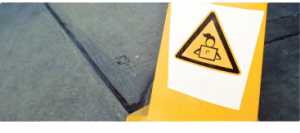**************************************************
FEATURED ARTICLES
7 Tips to Encourage Original Work
How can you design assignments that are plagiarism-proof? Here are 7 tips on developing strategies to encourage original student work:
1. Develop an awareness of student study practices
2. Discuss essay banks and custom essay writing services with students
3. Engender a deep understanding of plagiarism
4. Encourage an individualized approach to learning
5. Make innovative use of technology
6. Assess real life situations
7. Use detection tools to encourage learning
For detailed information, see the online guide:
http://www.plagiarismadvice.org/documents/briefingpaper/
*****
Call for Proposals on Plagiarism
Looking to participate and contribute to the academic community?
PlagiarismAdvice.org is seeking contributors to enhance content on its website as a resource for the academic community. Submit your brief proposal by the end of April. Suggested topics include:
– Approaches to engaging students in discussions on plagiarism and academic integrity.
– Addressing plagiarism in non-text based disciplines.
– Addressing academic plagiarism at all levels, including research.
– Innovative means of assessment.
– Formative approaches to using Turnitin.
– Using GradeMark in assessment for learning.
– Addressing plagiarism in Web 2.0 technologies, such as wikis, blogs, and other social networking media.
– Assessing the effectiveness of approaches to academic integrity.
Submit your proposal:
https://spreadsheets.google.com/embeddedform?formkey=dDlIS1ZsZW0yWGUzX2IxWk1sRjV6TGc6MA
PlagiarismAdvice.org is an academic advisory site that provides community-led guidance and best practices in addressing the issue of academic plagiarism and is operated by iParadigms Europe, Ltd.
**************************************************
IN THE NEWS
BBC News: The Ctrl+C, Ctrl+V Boom
Coverage of recent high profile plagiarism scandals involving a German minister’s resignation and Gaddafi’s son’s use of a ghost writer.
http://www.bbc.co.uk/news/magazine-12613617
NY Times: A Folly That Can Cost a Reputation – or Not
A look at how cultural differences vary in the way people perceive and respond to plagiarism in academia, politics, business, and media.
http://www.nytimes.com/2011/03/07/education/07iht-educLede.html
WSJ: Students Struggle for Words
While M.B.A. students’ quantitative skills are prized by employers, their writing and presentation skills have been a perennial complaint.
http://online.wsj.com/article/SB10001424052748703409904576174651780110970.html
**************************************************
UPCOMING EVENTS
User Events
Maximizing Turnitin with GradeMark and PeerMark
29 June 2011
Imperial College
London, UK
http://gmsouth.eventbrite.com/
*****
Webinars
Turnitin Academy Live
Developing 21st Century Skills with Turnitin
17 March 2011
http://community.turnitin.com/events/event_details.asp?id=145399
PlagiarismAdvice
Live webinar series focused on plagiarism and academic integrity.
Identifying and Tackling Plagiarism
23 March 2011
https://nlearning.webex.com/nlearning/j.php?ED=169664532&RG=1&UID=1208509907&RT=MTgjMjE%3D
Designing Plagiarism Out of Coursework
30 March 201
https://nlearning.webex.com/nlearning/j.php?ED=169678382&RG=1&UID=1208557302&RT=MTgjMjE%3D
Best Practice for Dealing with Academic Misconduct
6 April 2011
https://nlearning.webex.com/nlearning/j.php?ED=169678927&RG=1&UID=1208558997&RT=MTgjMjE%3D
Institutional Policies and Procedures
13 April 2011
https://nlearning.webex.com/nlearning/j.php?ED=169679417&RG=1&UID=1208560857&RT=MTgjMjE%3D
*****
Conferences
AoC Annual Conference
31 March 2011
London, UK
https://www.aoccreateevents.co.uk/aoc/frontend/reg/thome.csp?pageID=128574&eventID=371&eventID=371
ASKe Plagiarism Event
9 June 2011
Oxford, UK
http://www.brookes.ac.uk/aske/events/index.html
**************************************************

 Recent research published in Mid-Western Educational Researcher looked at high school students’ perceptions of cheating on tests, completing homework and writing reports. This study revealed that students tended to consider cheating activities as more significant with testing, less so with homework and least of all with writing reports. Students viewed cheating behaviors in the classroom more harshly than cheating behaviors outside the classroom. 54% of students surveyed did not identify plagiarism as a form of cheating and 50% admitted that they had used material either from the internet or someone else’s ideas as their own and/or plagiarized material in a written report.
Recent research published in Mid-Western Educational Researcher looked at high school students’ perceptions of cheating on tests, completing homework and writing reports. This study revealed that students tended to consider cheating activities as more significant with testing, less so with homework and least of all with writing reports. Students viewed cheating behaviors in the classroom more harshly than cheating behaviors outside the classroom. 54% of students surveyed did not identify plagiarism as a form of cheating and 50% admitted that they had used material either from the internet or someone else’s ideas as their own and/or plagiarized material in a written report.